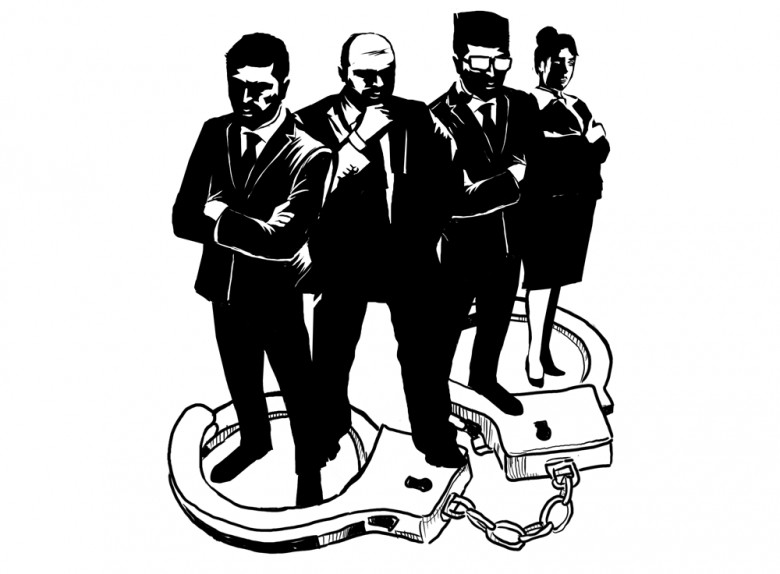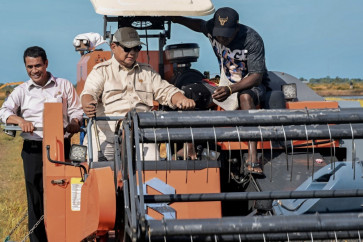Popular Reads
Top Results
Can't find what you're looking for?
View all search resultsPopular Reads
Top Results
Can't find what you're looking for?
View all search resultsPolitics tends to corrupt?
What has happened to the KPU and PDI-P is a reminder that fighting corruption is easier said than done, particularly in a country where corruption seems to have taken root.
Change text size
Gift Premium Articles
to Anyone
T
he arrest of three Indonesian Democratic Party of Struggle (PDI-P) members on Wednesday is certainly an unwanted birthday present from the Corruption Eradication Commission (KPK) to last year’s election winner; today is the PDI-P’s 47th anniversary.
The antigraft body, which has been struggling to regain public trust, apprehended a PDI-P legislative candidate and two of the party secretary-general’s staff for their alleged role in a bribery case involving General Elections Commission (KPU) member Wahyu Setiawan, who has also been arrested.
KPK chairman Firli Bahuri said those arrested were suspected of giving and accepting bribes, which a KPK spokesman said were in rupiah and foreign currencies.
While the investigation is under way to discover the motives behind the alleged bribery and possible involvement of other figures, the scandal looks certain to confirm the notion of pay-to-play politics. Every public office has its price tag, and once elected, a successful candidate will seek every path to recover the money he or she has spent.
A candidate for regent, for example, reportedly has to raise at least Rp 30 billion (US$2.14 million) for campaigning and to pay for the endorsement of a political party. The same mechanism is said to apply for legislative candidates, who have to pay for nominations in electoral districts that are traditional party strongholds.
As politicians can hardly escape from this practice, money politics has become the norm. Unsurprisingly the KPK has brought to justice over 100 lawmakers, governors, regents and mayors for committing graft. On Wednesday, Saiful Ilah, the regent of Sidoarjo in East Java, extended the list of politicians the KPK has arrested.
For the PDI-P, the latest bribery case is a slap in the face as the party has claimed it champions the anticorruption drive. As the winner of both the legislative and presidential elections, the PDI-P may be more susceptible to graft than other political parties. Therefore, its commitment to anticorruption has to manifest itself in initiatives like ordering an independent audit of its individual legislative candidates’ campaign funding for the sake of transparency and accountability, rather than simply dismissing any member who violates the commitment.
Media reports suggest the case that has entangled the PDI-P centers on a legislative candidate from the party who was attempting to influence the KPU to award a House of Representatives seat to him. The KPU eventually ruled in favor of another PDI-P candidate, who was among 575 House members inaugurated on Oct. 1, 2019.
The case has refreshed the public’s memory of a previous corruption case involving three KPU commissioners. Ironically, the arrest of Wahyu comes after the KPU boasted its full support for the fight against corruption by proposing a regulation that would ban ex-graft convicts from contesting the upcoming regional elections in September.
What has happened to the KPU and PDI-P is a reminder that fighting corruption is easier said than done, particularly in a country where corruption seems to have taken root. The PDI-P, however, still has a chance to show its support for corruption eradication by facilitating, rather than obstructing, the investigation.










